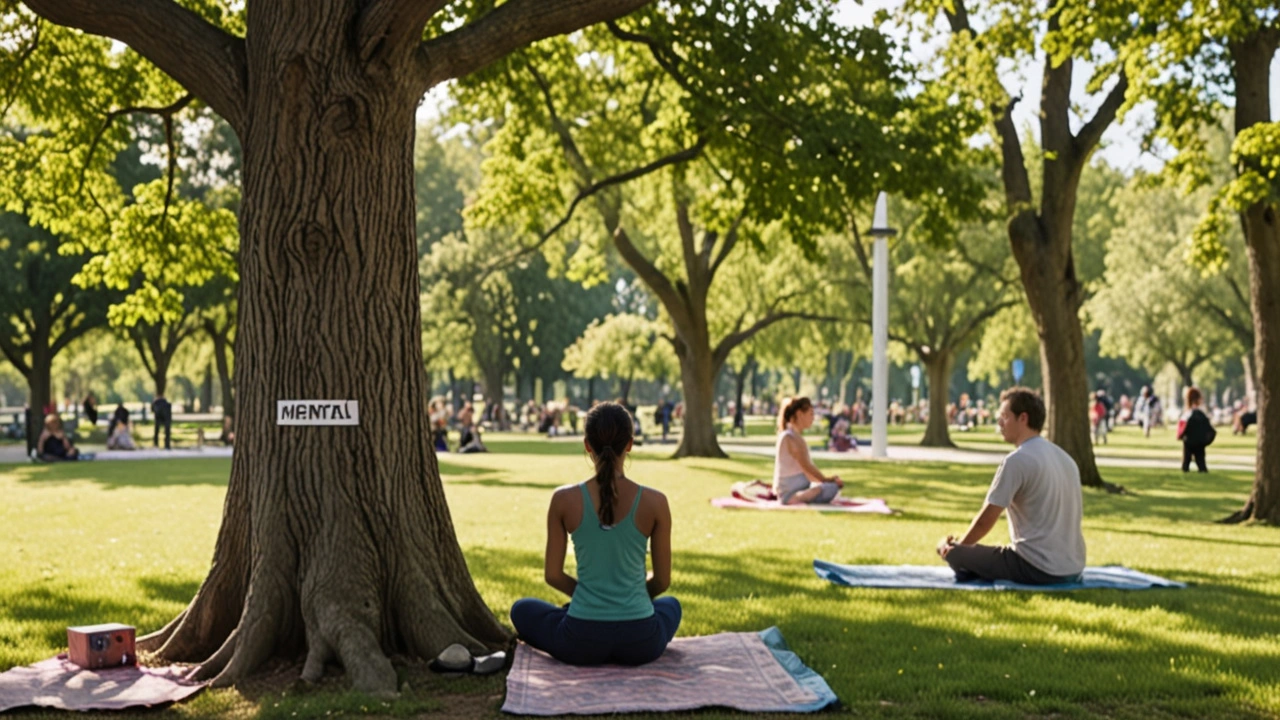Mental Health Tips You Can Use Today
Feeling on edge, tired, or unfocused? Small habits change how you feel faster than big, once-in-a-while plans. These mental health tips are short, practical, and easy to fit into a real day.
Daily habits that cut stress
Start with one 5–10 minute practice. Try box breathing: inhale 4 seconds, hold 4, exhale 4, hold 4. Do it three rounds when you notice tension. Add a 10–20 minute brisk walk midday—movement clears your head and boosts mood chemicals. Schedule two short breaks each workday: stand, look away from screens, and stretch for 2 minutes. That resets focus and lowers stress.
Food and small routines matter. Eat a protein-rich breakfast or a balanced health juice after workouts to steady energy and mood. Pack a smart snack like nuts or yogurt to avoid sugar crashes that spike anxiety. Sleep is non-negotiable: aim for a dark, cool room and stop screens 30 minutes before bed. If you struggle to fall asleep, try lavender aromatherapy or a 10-minute breathing practice.
Mindfulness, creativity, and tools that help
Mindfulness doesn’t need silence for an hour. Use 5-minute guided meditations or simple body scans to notice tension and release it. If sitting still feels impossible, try a moving mindfulness: walk slowly and name three things you see, two you hear, one you feel. For kids, short guided breaths or a one-minute belly-breathing game works wonders and builds long-term calm.
Creative outlets are real tools. Doodle for 10 minutes, try journaling with the prompt "What went well today?", or pick a small art task to shift focus away from worries. Creative arts therapies help change mood without needing heavy talk therapy first.
If stress is persistent, biofeedback can speed learning how your body responds to stress and how to calm it. It tracks simple signals so you see progress fast. Sports massage or regular movement helps if tension shows up in the body—tight shoulders and headaches often ease when muscles get treated.
At work, make mental health part of your schedule: block one focus hour, take a real lunch away from your desk, and plan one tiny win each day. If you notice sleep loss, irritability, or trouble functioning for more than two weeks, consider professional help. Therapy, a medical check, or a short biofeedback program can be the turning point.
Pick two tips from this page and use them for one week. Track what changes—better sleep, more focus, less reactivity. Small, consistent steps beat big promises. If you need more practical plans—like a 7-day routine or kid-friendly scripts—grab one tip and I’ll write a simple plan you can start tomorrow.

The Importance of Seeking Help for Mental Health
In this article, we'll explore why seeking help for mental health is crucial. We will discuss the signs that indicate one might need support, the benefits of professional help, and some tips for reaching out. The aim is to encourage those struggling to take the first step towards better mental well-being.
Read More
Comprehensive Guide to Mental Health: Key Insights and Tips
Dive into the essential aspects of mental health with practical insights and tips. Understand the basics, learn how to recognize signs of mental health issues, explore effective coping strategies, and discover the importance of seeking professional help. This guide aims to provide useful information for managing and improving your emotional well-being.
Read More